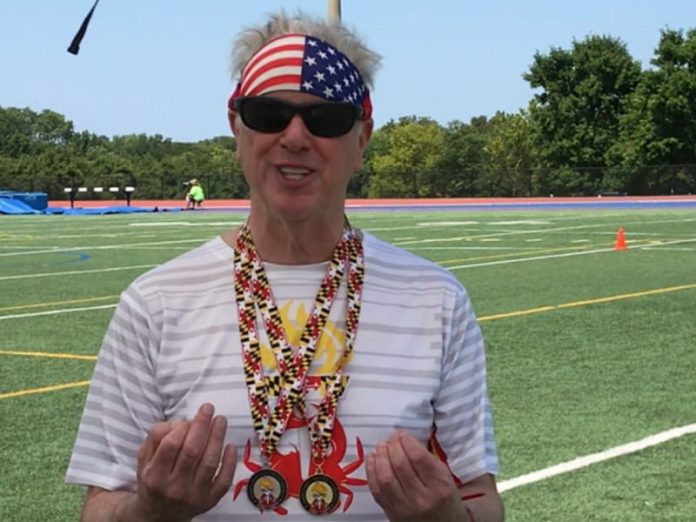
Dan Williams of Reston, Virginia, was under a lot of stress when he felt a pounding sensation in his chest.
He thought it was probably pneumonia and knew he should go to the hospital to get checked out.
But it was also just one more thing to worry about, on top of a mounting pile of professional and financial woes. Williams worked in telecommunications sales and had been through a tumultuous stretch at work because he’d struggled to hit the sales quotas needed to keep his job.
After losing everything in 2008 during the Great Recession, he knew exactly how hard it would be to lose his livelihood again – and it was on his mind constantly. He neglected his physical and emotional health while dealing with the all-consuming stress from his job.
Williams, who was 63 at the time, went to a veteran’s hospital in West Virginia to get checked out.
When he got there, a doctor examined him and said, “Well, you do have pneumonia. But you also had a heart attack last night.”
Williams was immediately transferred to a veteran’s hospital in Washington, D.C., to undergo a routine procedure to insert a stent into a coronary artery to improve blood flow in his heart.
It turned out to be far from routine. The procedure triggered multiple heart attacks, requiring open-heart surgery.
When Williams’ family got to the hospital, the head surgeon told them he didn’t expect Williams to survive the operation.
The surgery took nine hours. A major issue was internal bleeding; it was difficult to stop because of blood thinners Williams had been taking. Doctors later told Williams his heart stopped twice while on the table.
As he began to recover, Williams saw an X-ray of his lungs. The pneumonia caused so much inflammation that the X-ray image “looked like London fog,” Williams said.
Williams thought about his four daughters and his partner, Karen Catone. He didn’t want to put them through anything else.
“I knew I needed to start taking care of myself and being accountable for my own health,” he said. “I had to start walking or I was going to die.”
So, he called for the nurse and said, “I’m ready to walk.”
He shuffled out to the hospital hallway. He saw an artificial Christmas tree at the end of the hallway and said, “That’s my goal.”
Over the next five weeks, he kept persisting, one step at a time, eventually making it all the way to the tree and back. He left the hospital vowing to keep going.
Only, he didn’t. He slipped back into poor eating habits, high stress and a sedentary lifestyle.
A few years later, he was out to dinner with Catone. He’d struggled to move around that day and felt bloated at the table. He heard a voice say, “You’re not going to get another second chance.”
That proved to be the wake-up call he needed.
Williams started exercising, walking a few minutes at a time at first. Then he decided to try running again. He’d loved the sport earlier in his life.
He was a cross-country runner in high school and finished a few marathons in his 20s. He’d shown potential but let it go when he got sucked in to a fast-paced career in the tech industry.
He found a local master’s track club and started competing in track events so he could push himself and find a community.
“I loved connecting with people who were using running to live a full and happy life,” he said.
Williams soon entered the 2016 Maryland Senior Olympics – and won a bronze medal in the 100-meter dash. He loved that running required him to keep showing up, through the highs and lows, to perform well. He knows he doesn’t want to walk away from the sport again.
“On the hard training days, I think about how much worse it was when I was in the hospital, struggling to walk,” he said.
He joined a team and hired a coach to hold himself accountable and train with intention, as he continues to compete in prestigious senior events. He also created a community devoted to helping others find their own path to a healthy and active life.
“I was granted extra innings in life, and I don’t want to squander them,” said Williams, who’s now 74. “I want to help other people see that it is possible to go from near death to gold medals.”
His Senior Olympics teammate Willie Spruill said it’s easy to feel inspired by Williams.
“He trains and competes with an infectious determination,” Spruill said. “He’s moved a lot of people through his story.”
Written by Emily Halnon.
If you care about heart health, please read studies that vitamin K helps cut heart disease risk by a third, and a year of exercise reversed worrisome heart failure.
For more information about heart health, please see recent studies about supplements that could help prevent heart disease, stroke, and results showing this food ingredient may strongly increase heart disease death risk.



